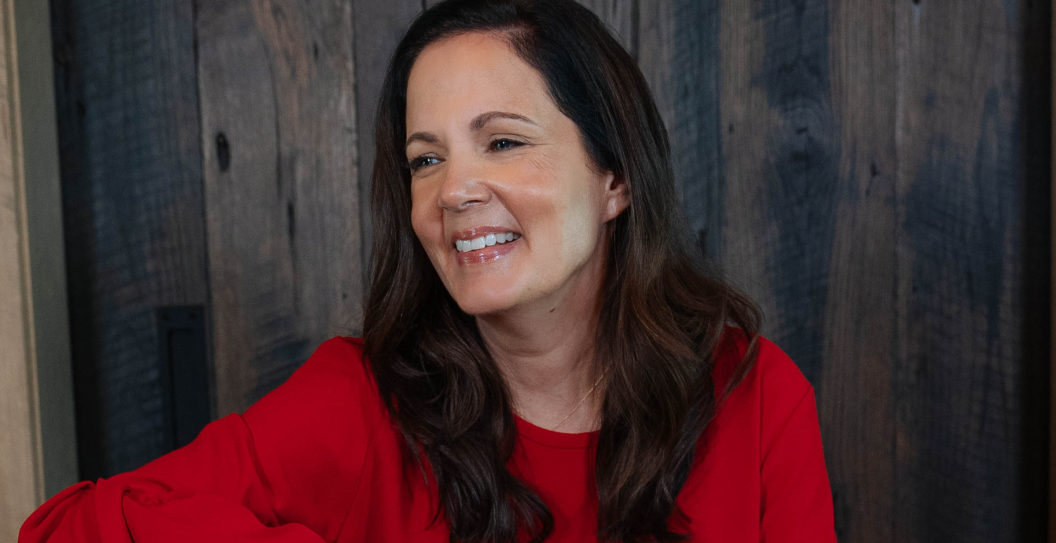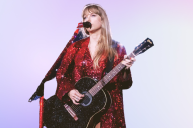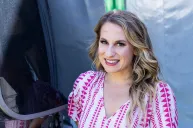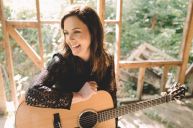In 2017, Lori McKenna made country music history when she became the first woman to win Songwriter of the Year at the Academy of Country Music awards. The song, "Humble and Kind," was a smash hit for Tim McGraw, but -- like many of McKenna's songs -- it was written a thousand miles away from Nashville, just outside of Boston at McKenna's dining room table. The song, which McKenna wrote for her five kids, who -- at the time -- spanned in ages from 10 to 25, went on to win a Grammy and helped McKenna make history once again as the first woman to win the CMA award for Song of the Year for two consecutive years.
Videos by Wide Open Country
McKenna's unique perspective has made her one of the most sought after -- and unconventional -- country songwriters. Despite writing hits for McGraw, Little Big Town ("Sober" and "Girl Crush," which she penned with her fellow Love Junkies Liz Rose and Hillary Lindsey), Miranda Lambert, Carrie Underwood and more, McKenna never moved to Nashville, opting to remain in her home state of Massachusetts. And when she's not flying into Music City for co-writes, she does some of her best songwriting driving around running errands, folding laundry or, yes, writing at her dining room table.
Ten years before "Humble and Kind," McKenna was even further away from Music Row. She was a folk singer recording cult favorite acoustic albums, such as 2004's stunning Bittertown, which earned the praise of friend and singer-songwriter Mary Gauthier, who passed on the album to publisher Melanie Howard. Within the same year, country music superstar and McGraw's wife Faith Hill recorded McKenna's songs for her 2005 album Fireflies.
McKenna says Hill's album "changed everything." It was also an early indicator that McKenna's deeply personal and often hyper-specific songs could resonate with listeners everywhere.
"I had only been to Nashville one time before that and just the idea that Faith Hill, who is this very different woman than me... has somehow identified with another housewife on the other side of [the country] who grew up in the north, and barely left the Northeast. Somehow I've said something that she can identify with," McKenna tells Wide Open Country. "It taught me a lot about songs...You can write from a really personal space and someone else can find themself in it somehow. That gives you the license to keep doing that."
"Because I got the publishing deal and because of everything the McGraws have done for me in Nashville, I get to keep doing what I love to do," McKenna continues. "I look back, I'm like 'Oh my God, I've been doing this for like 20 years? How do they let me keep doing this? Nobody's called me and canceled me yet. I expect somebody to call and be like 'You can't be a songwriter anymore. Just go get a job at Dunkin' Donuts or something.' I'm so lucky that I get to do it."
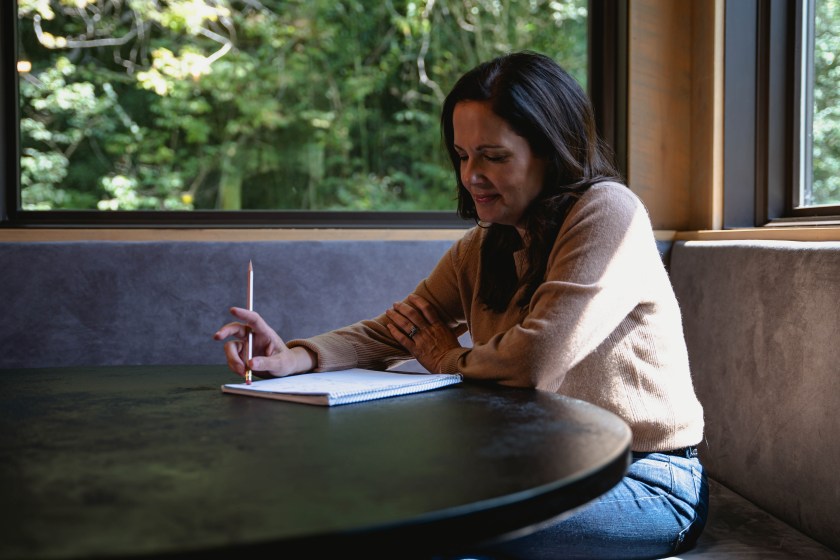
Thomas Heney
Looking back with gratitude and taking stock of her life is something McKenna has made a staple of her songwriting, from "People Get Old" (from 2018's The Tree) to recently released "The Old Woman in Me" and "Growing Up."
"I think that age gives you -- at least for me -- it's given me the confidence to be like, 'It's okay. I can look back. That's my job right now,'" McKenna says. "I know everybody doesn't want every song to be a nostalgic song about aging [Laughs], but I'm just gonna do that for right now and settle in and see what comes out of it."
McKenna once again travels through time on her Dave Cobb-produced album 1988 (out July 21), a triumphant exploration of the wisdom gained from aging and a celebration of life's smallest and most precious moments.
Wide Open Country caught up with McKenna to discuss writing about aging, co-writing with her sons, the joy of co-writing and new album 1988.
This interview has been edited for length and clarity.
You have such a gift of writing about the passage of time and things we learn when we get older. How often do you find yourself writing about your younger self or, in the case of this album, your future self?
Now I'm in this like 'everybody gets old' [period]. I can't stop writing about getting old [Laughs] ...It obviously has to do with my own aging process, but there's also these years -- and this happened with myself, but also all of my friends at the same time -- where your parents get to the point where they need a little bit more help at the same time that your kids are leaving the house...My youngest just graduated high school a couple weeks ago. There's so much happening and your weight is being shifted from, you know, they don't need you every day anymore.
My husband lost a brother last year and I lost a brother this year and watching my friends lose their parents -- that's kind of where 'Growing Up' came from. I had three friends lose their parents in this one year... I just can't help but looking back.
You have co-writes with your kids on this album. What's it like to tackle these topics with them?
I wrote "1988" with my son Brian, who's my oldest and "Happy Children" with my son Chris, who's the third oldest. They are both living in Nashville writing songs every day and doing the thing -- bartending, driving Lyft, first publishing deals, all the things. Watching them on that journey, just watching them move there and find their communities and learn the work side of being in love with the craft -- it's been so fun to watch your kids do that, especially because I don't live there. If we all have a song come out on New Music Friday, it's a huge event in the house.
My first shows, my first everything, Brian was in the backseat of my car. He was just with me for everything in the beginning. So it was really fun to be able to be so personal and so nostalgic with someone that was literally in the shotgun seat with me. I love writing with them...They know what I'm capable of and they know how to push me a little bit. They also know when to just let mom be mom in the way she writes songs.
I wanted to ask a bit more about "1988" -- was that song inspired by your husband?
That was the year we got married. It was actually inspired by -- the cover art [for the album] is a tattoo my daughter has. She comes home with this angel tattoo with 1988 [on it] -- the year our family was established basically. I just thought it was so cool. I thought it was so cool that it made an impact on her in that way,
It just made me think about how much, if I didn't have them, I wouldn't have me. I would just be a completely different human. I just decided to write it in that way of it being a love song to my family -- to all of them. And to us as younger people -- my husband and I.
I think all songwriters have a list of titles in their phones. I think the reason that we love titles so much is it's really a good starting ground. Even if you start with a title -- whatever it is -- and you end up on something completely different, it started you down that road. You might think you're writing a song about a vacation and then it ends up being a heartbreak song about somebody in high school.
I love starting with a title, but I also love just sitting with a guitar and just finding a chord progression and seeing what pops out. Because a lot of times those will be the really fast songs -- when the lyric finds the melody at the same time... when they find each other before they find your face almost, those are the magical songs. "Girl Crush" was written that way. I said the title and Hillary Lindsay just sang the first four lines. Liz [Rose] and I watched it. Those are really magical songs... when they sort of know each other before they even land in you.
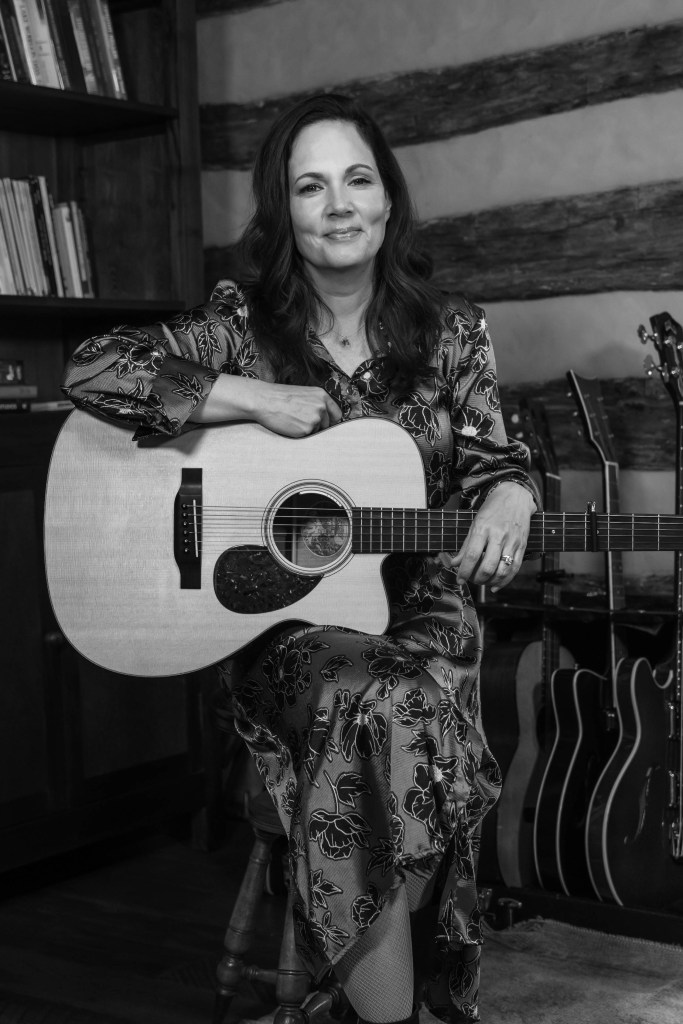
Thomas Heney
You've been co-writing in Nashville for the last several years. Has co-writing given you a new perspective on songwriting or have you learned anything new about yourself as a songwriter through co-writes?
I really found my community in co-writing...I still do write alone and I still work at at that to not forget how to do that, but I love the experience of co-writing. I love finding my place in the song and finding how I can be helpful. Some days I'm the artist, some days I'm just making sure we have lunch and everybody feels comfortable [Laughs]. Some days I'm the challenger [or I'll be like] is that really what we would say? Is that really the truth? It's just the best job ever. I didn't co-write until I had a publishing deal, which was later on for me. I started writing as a teenager. I got a publishing deal when I was like 36. So I had a lot of years of writing alone, which is fine and great because I think I learned a lot... But when I found co-writing, or was exposed to co-writing, I realized that I can really be part of a community.
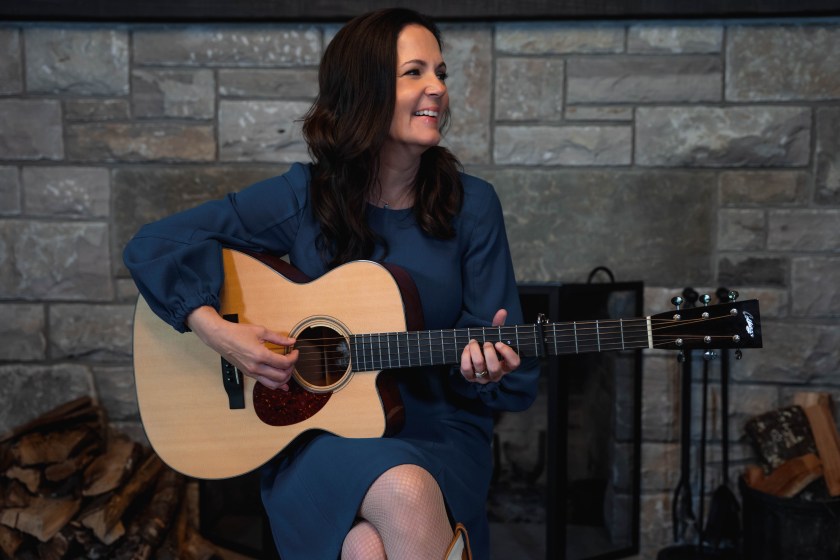
Thomas Heney
What is it about your partnership with The Love Junkies [songwriters Liz Rose and Hillary Lindsey] that has been so successful? What made you all click?
"The first song we wrote was "Sober," which a Little Big Town cut. I'm always so thankful that we named ourselves [The Love Junkies]. I always type everything and it's so much easier to write The Love Junkies [Laughs]. It was a joke, but it really has worked out for us.
It's all the things I just said about writing, about someone's strength meeting someone's weakness and someone's weakness meeting someone's strength...we do that. The thing about us is we do that in every aspect of our lives now.
Liz and Hillary had written "Fearless" together with Taylor Swift, not in the same room. Like it was a two day session and they did an overlap together. Hillary and I had written once together and Liz and I had written a bunch, but it was the first time the three of us were in the room that we wrote "Sober." I think we wrote a couple other songs that day and we just knew this combination works as songwriters. Immediately, like by day two, I think we knew that we also work really well as women who can support each other. We're all about 10 years apart. We're all in very different places in our lives and we talk to each other almost every day. The thing that I think is the greatest about us is we can always be truthful with one another and the other person will accept the truth. We'll take it in and know that that truth -- if it was beautiful or if it was hard -- came from a good place.
READ MORE: Hailey Whitters on How 'Everything She Ain't' Reflects Her Own Philosophy: 'It's an Ode to Owning Our Truth'
